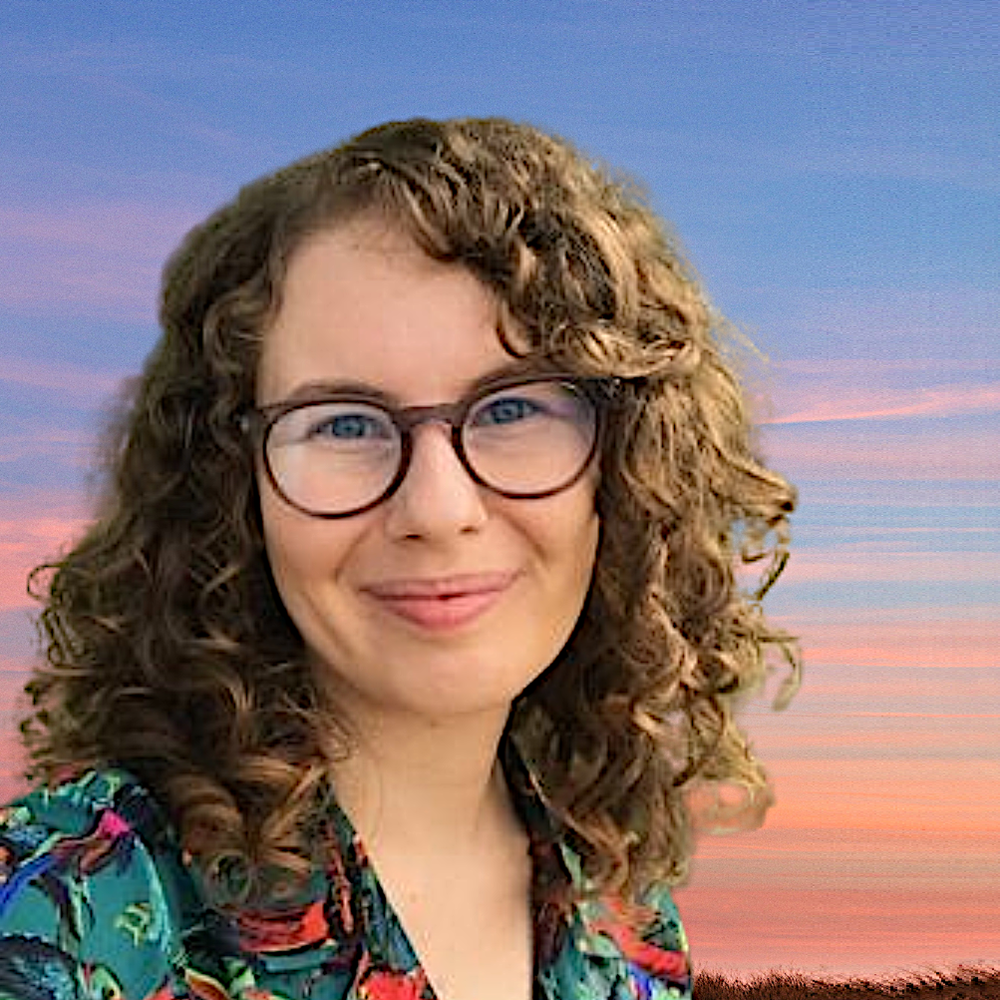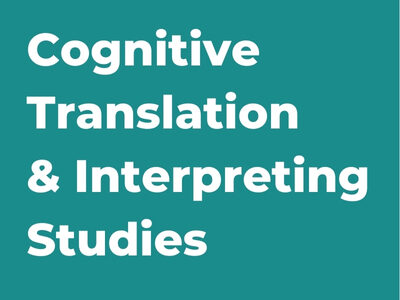Instructors
Ricardo Muñoz Martín
School co-director

Ricardo Muñoz Martín (PhD, UC Berkeley, 1993) has been a part-time freelance translator since 1987, ATA certified for English-Spanish in 1991. Today he is a professor of cognitive translation & interpreting studies at the University of Bologna. A member of the TREC network and coordinator of the MC2 Lab, Muñoz is a co-founder of AIETI and co-founder and co-editor of Translation, Cognition & Behavior and the Encyclopaedia of Translation and Interpreting. He has published over 100 papers, primarily on cognitive translatology, a theoretical framework rooted in situated cognition, and has an extensive editorial record. More info at ORCID, Google Scholar and ResearchGate and Dialnet.
Selected publications
- Muńoz Martín, Ricardo (in press). Do translators dream of electric brains? Fachsprache
- Muńoz Martín, Ricardo & Christian Olalla Soler. 2021. Where does it hurt? Learning from the parallels between medicine and cognitive translation & interpreting studies @ Halverson, Sandra L. & Álvaro Marín García, eds. Contesting epistemologies in cognitive translation and interpreting studies, 193–220. New York: Routledge.
- Muńoz Martín, Ricardo & Christian Olalla Soler. 2022. Translating is not (only) problem solving. JoSTrans 38: 3–31. https://jostrans.soap2.ch/issue38/art_munoz.php
Bogusława M. Whyatt
School co-director

Bogusława Whyatt is an associate professor of linguistics and head of the Department of Psycholinguistic Studies at the Faculty of English, Adam Mickiewicz University in Poznań, Poland, where she teaches graduate seminars in translation studies and practical translation courses. Her research interests focus on language processing in written translation, and on the interface between bilingualism and translation during translation expertise development. Currently, she is the Principal Investigator in the Read Me Project funded by the Polish National Science Centre, which studies reading and reception of mediated (translated) texts. She is a member of the MC2 Lab, TREC and the Consortium for Translation Education Research (CTER).
Selected publications
- Whyatt, B. (2019). In search of directionality effects in the translation process and in the end product. Translation, Cognition & Behavior, 2(1), 79–100. https://doi.org/10.1075/tcb.00020.why
- Whyatt, B., Tomczak-Łukaszewska, E., Witczak, O., & Lehka-Paul, O. (2024). Readers have to work harder to understand a badly translated text: An eye-tracking study into the effects of translation errors. Perspectives, 1–21. https://doi.org/10.1080/0907676X.2024.2418016
- Pavlović, N., & Whyatt, B. (2023). Training bilinguals to become translators. In Ferreira, A. & J. W. Schwieter, The Routledge Handbook of Translation, Interpreting and Bilingualism (pp. 378–393). Routledge. https://doi.org/10.4324/9781003109020-30
Agnieszka Chmiel

Agnieszka Chmiel is Associate Professor and Head of the Department of Translation Studies at the Faculty of English, Adam Mickiewicz University in Poznań, Poland. She also works in the EYE-LANG Eye-tracking Laboratory for Research in Language. Her research interests include: interpreting studies, lexical processing and memory in interpreting, reading in sight translation, audiovisual translation and audio description. She is Associate Editor of TARGET International Journal of Translation Studies. She currently leads an interdisciplinary research team that examines bilingual control mechanisms in conference interpreting and develops PINC, the Polish Interpreting Corpus. She was also a co-Principal Investigator in the AIIC-funded project on the impact of remote interpreting settings on interpreter experience and performance.
Selected publications
- Chmiel, A., Janikowski, P. & Lijewska, A. (2020). Multimodal processing in simultaneous interpreting with text. Target, 32(1): 37-58.
- Li, T. & Chmiel, A. (2024). Automatic subtitles increase accuracy and decrease cognitive load in simultaneous interpreting. Interpreting, 26(2): 253–281.
- Chmiel, A., Janikowski, P., Koržinek, D., Lijewska, A., Kajzer-Wietrzny, M., Jakubowski, D., & Plevoets, K. (2023). Lexical frequency modulates current cognitive load, but triggers no spillover effect in interpreting. Perspectives, 32(5), 905–923.
Christopher D. Mellinger

Christopher D. Mellinger works at the University of North Carolina at Charlotte (USA) where he teaches translation and interpreting at the graduate and undergraduate levels. His research focuses on translation and interpreting process research, translation and interpreting technologies, and research methods. He is the co-editor of the journal Translation and Interpreting Studies, co-author of Quantitative Research Methods in Translation and Interpreting Studies, co-editor of Translating Texts: An Introductory Coursebook on Translation and Text Formation, and editor of The Routledge Handbook of Interpreting and Cognition. He has co-edited special issues on community interpreting, translation, and technology, legal translation and interpreting as well as translation process research. Mellinger is a member of the TREC network.
Selected publications
- Mellinger, Christopher D., ed. 2025. The Routledge Handbook of Interpreting and Cognition. New York: Routledge.
- Mellinger, Christopher D. and Thomas A. Hanson. 2017. Quantitative Research Methods in Translation and Interpreting Studies. New York: Routledge.
- Mellinger, Christopher D. and Thomas A. Hanson. 2019. “Meta-analyses of simultaneous interpreting and working memory.” Interpreting 21(2), 165-195.
Joss Moorkens

Joss Moorkens is an Associate Professor at the School of Applied Language and Intercultural Studies in Dublin City University (DCU), Science Lead at the ADAPT Centre, and member of DCU’s Institute of Ethics and Centre for Translation and Textual Studies. He has published over 60 articles, chapters and papers on the topics of translation technology interaction and evaluation, translator precarity, and translation ethics. He is General Coeditor of the journal Translation Spaces, coeditor of a number of books and journal special issues, and coauthor of the textbooks Translation Tools and Technologies (Routledge 2023) and Automating Translation (Routledge 2025). He sits on the board of the European Masters in Translation Network.
Selected publications
- Moorkens, J. 2024. ‘I Am Not A Number’: Quantification and Algorithmic Norms in Translation. Perspectives 32(3), 477-492.
- Moorkens, J. Guerberof Arenas, A. 2024. Artificial intelligence, automation, and the language industry. Ii: Massey, G., Ehrensberger-Dow, M. and Angelone, E. (Eds.) The De Gruyter Handbook of the Language Industry. Berlin: De Gruyter.
- Moorkens, J. Castilho, S., Gaspari, F., Popovic, M., Toral, A. 2024. Proposal for a Triple Bottom Line for Translation Automation and Sustainability: An Editorial Position Paper. The Journal of Specialised Translation, (41), pp. 2–25.
Ana María Rojo López

Ana Mª Rojo López is a Full Professor of Translation and Interpretation at UM. She coordinates the research group Translation, Didactics, and Cognition and is a member of the Thematic Network on Empirical and Experimental Research and the MC2 Lab. Her research focuses on the areas of translation and cognition, with a central emphasis on research methodology and the role of emotions and personality factors in the translation process. She has published numerous books and scholarly works in prestigious national and international publishing houses and journals.
Selected publications
- Rojo López, Ana María & Caldwell-Harris, Catherine (2023) Emotions in Cognitive Translation and Interpreting Studies. In John Swieter & Aline Ferreira (Eds.) The Routledge Handbook of Translation, Interpreting and Bilingualism, pp. 206-221, Routledge. 10.4324/9781003109020-18
- Rojo López, Ana María & Foulquié Rubio, Ana (2024) Interpreting, Affect and Emotion. In C.D. Mellinger (Ed.) The Routledge Handbook of Interpreting and Cognition, Routledge.
- Rojo López, Ana María & Ramos Caro, Marina (2023) Experimenting with Audio Description: When Participants are All Ears in CTIS. Special Issue of Translation, Cognition and Behavior, 6(2), 212-230.
Tutors
Olha Lehka-Paul

Dr Lehka-Paul is an assistant professor at the Department of Psycholinguistic Studies at the Faculty of English, Adam Mickiewicz University in Poznan, Poland, and a certified translator and interpreter. Her research interests meet at the intersections of translation studies and psychology with special emphasis on the role of different dimensions of translator’s personality in translation performance. She is also interested in the methodological aspects of Cognitive Translation and Interpreting Studies, language psychotypology, bilingualism and multilingualism research. She is currently involved in a project investigating the reading and reception of mediated (translated) texts, the Read Me project, supervised by Professor Bogusława Whyatt and funded by the Polish National Science Centre.
Selected publications
Lehka-Paul, O. (2020). Personality matters: The translator’s personality in the process of self-revision. Leuven University Press. https://doi.org/10.2307/j.ctv1595mct
Antonio Morata

Antonio Morata works at the Department of German and Romance Languages at Aarhus University, Denmark, where he currently teaches BA and MA courses in Spanish linguistics, intercultural communication, and conference interpreting. He earned a degree in Translation and Interpreting, specializing in legal translation, from Universitat Autònoma de Barcelona, Spain. Later he pursued his academic interests in Linguistics at Aarhus University, specializing in cognitive linguistics and typology. His research focuses on the intersection between CTIS and cognitive linguistics, particularly at the theoretical and conceptual level. In his research, he combines psycholinguistic methods and experimental sight translation in order to investigate linguistic typology.
Selected publications
Müller, H. H. & Morata, A. 2023. Schematicity vs. lexicality: typological differences between Danish and Spanish. Acta Linguistica Hafniensia: International Journal of Linguistics 55 (sup1): 104–126.
Olga Witczak

Olga Witczak holds a PhD in linguistics and is an assistant professor at the Department of Translation Studies, Faculty of English, Adam Mickiewicz University in Poznan, Poland. Her research interests include the use of eye-tracking in reading studies, machine translation, and translation and post-editing process research. She worked as a post-doctoral investigator in a grant project, funded by Polish National Agency for Academic Exchange, entitled ‘Unleashing the Power of Second Language Mastery: Cognitive Foundations of the Foreign Language Effect and Strategic Language Use’. She was a co-investigator in the EDiT project and is currently working in the Read Me project – both funded by the National Science Centre Poland. Her most recent publications include papers in Scientific Reports, Ampersand, and The Interpreter and Translator Trainer.
Selected publications
Whyatt, B., Tomczak-Łukaszewska, E., Witczak, O., & Lehka-Paul, O. (2024). Readers have to work harder to understand a badly translated text: An eye-tracking study into the effects of translation errors. Perspectives, 1–21. https://doi.org/10.1080/0907676X.2024.2418016
